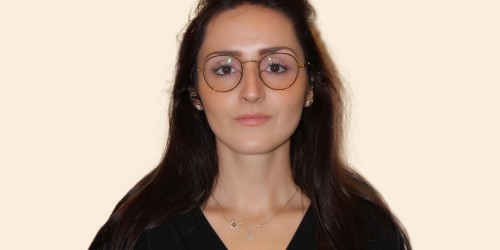
Addressing the world’s most acute issues: a personal past inspires an academic journey
Alumna Emina Osmandzikovic (International Relations and Politics, 2017) reflects on her passions and professional choices
Economics provides a sound understanding of core, pure and applied economics. While you study economics in considerable depth in this specialised degree, you employ ideas and techniques from many other disciplines including mathematics, statistics, history, sociology and politics. Therefore, our graduates are extremely well qualified for a wide range of jobs and further courses. Cambridge Economists enter a variety of careers in finance, government and management consultancy, as well as professional training in accountancy and actuarial work.
In first year of the course, students take five papers: Microeconomics, Macroeconomics, Quantitative Methods, Political and Social Aspects of Economics, and British Economic History.
In the second year of the course all students take three compulsory subjects: Microeconomics, Macroeconomics and Econometrics. In addition, students choose one optional paper from among the following: International Trade & Economic Development, Mathematics & Statistics for Economists, Labour, History & Philosophy of Economics, World Depression in the Interwar Years, International Relations, Politics or Sociology.
In the third and final year of the course all students take two compulsory subjects, Microeconomics and Macroeconomics, and choose two optional papers from a wide range of specialist subjects which are offered each year. In addition, all third-year students must also write a 7,500-word dissertation on an economic topic of their own choice.
Further information can be found on the Faculty and University websites.
Typical offers require
For other qualifications see the main entrance requirements pages on the University website.
Subject Requirements
A-level
Required: Mathematics
Highly recommended: Further Mathematics
IB
Required: Higher Level Mathematics (Analysis and Approaches)
Mature students and those taking other qualifications are encouraged to contact our Admissions Office (at admissions@lucy.cam.ac.uk) to discuss the entry requirements for their qualifications.
Written work
There are no written work requirements for this subject.
Assessments
Students are required to take the TMUA examination, for which pre-registration is required. Further details can be found on this webpage.
Interviews
Interviews allow us to distinguish amongst excellent applicants by assessing the skills and aptitudes essential for successful study in higher education, and your academic qualities – essentially, how do you think?
Interviews for all applicants to Lucy Cavendish will take place virtually. The aims and content will still be the same as in-person interviews. You can read more about Lucy Cavendish's online interviews here and you can read the University's information on interviews here.
Each candidate typically has two interviews, lasting between twenty and thirty minutes. In some cases, you will be given preparatory material beforehand.
In a few subjects, you will be interviewed by more than one College or in the Faculty. You will be notified of this in your interview invitation.
Supracurricular exploration is an important way to expand your knowledge of your subject, explore your interests and develop your skills. Our new webpage contains guidance on supracurricular exploration and a comprehensive source of resources, grouped according to undergraduate degrees at Cambridge.
Sign-up for our mailing list
We send out monthly newsletters to update you on exciting events and opportunities happening both in Lucy Cavendish College and across the wider university.
Attend an open day or event
Our Events and Open Days page advertises regular events held by Lucy Cavendish College. If you can, join us for a College Open Day to discuss your application with a member of our admissions team.